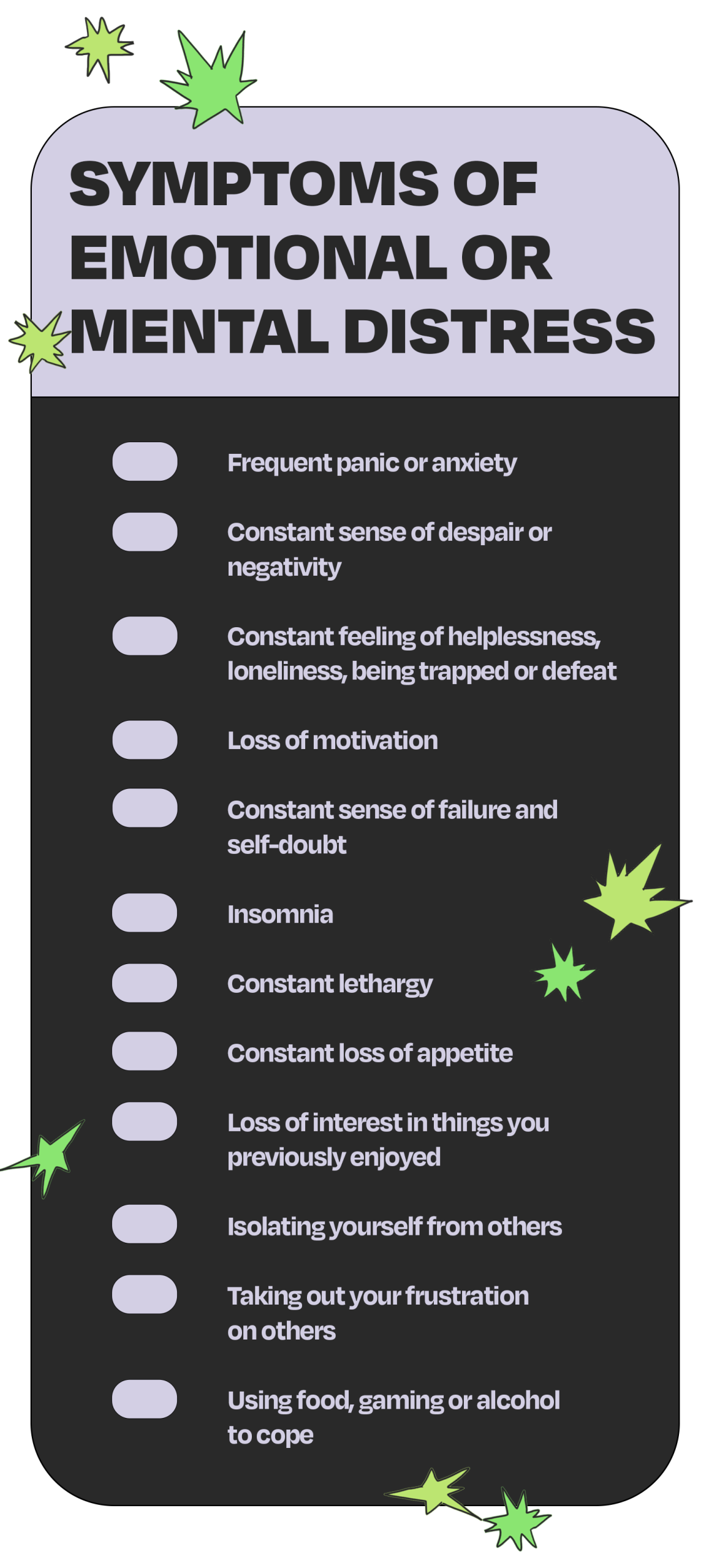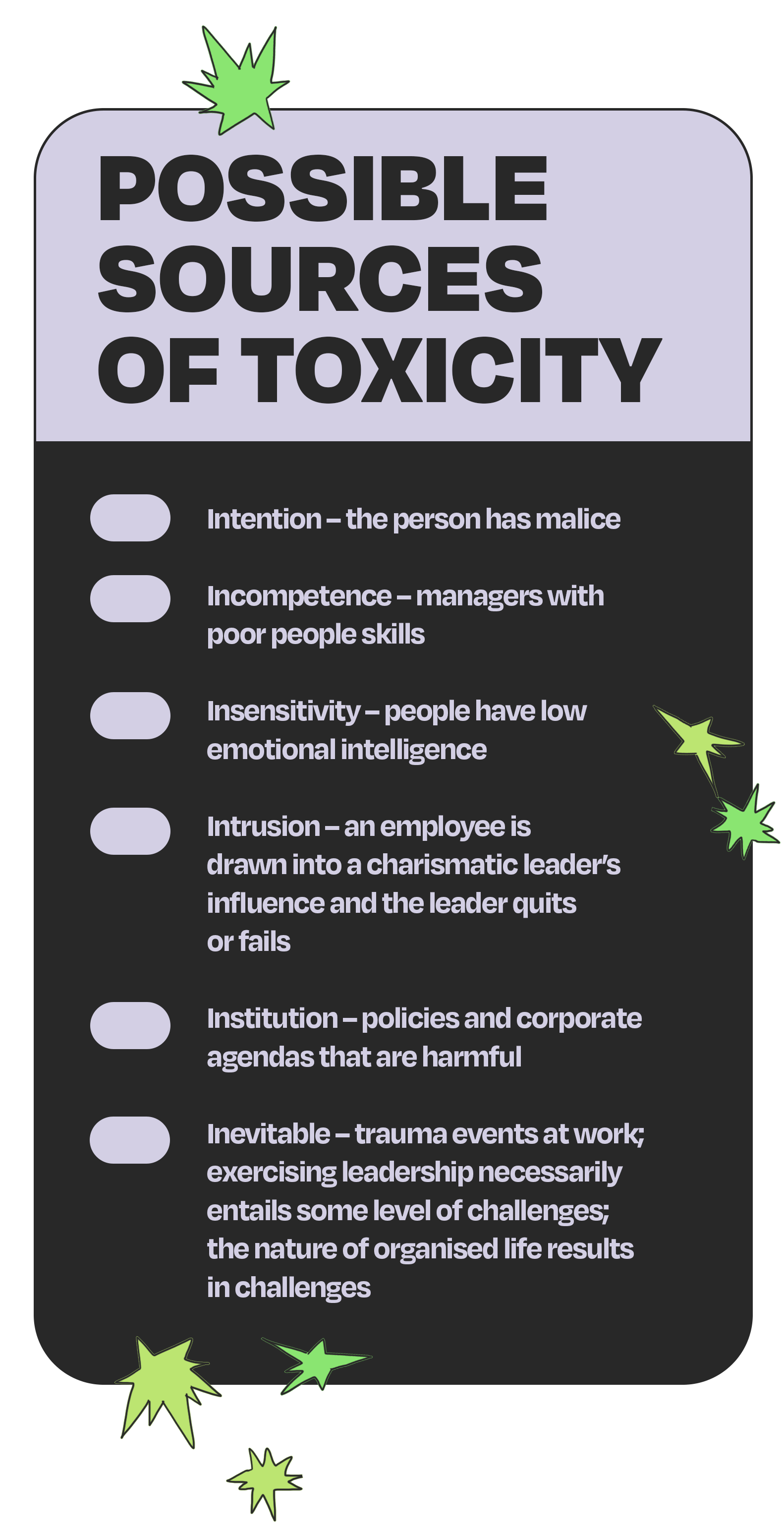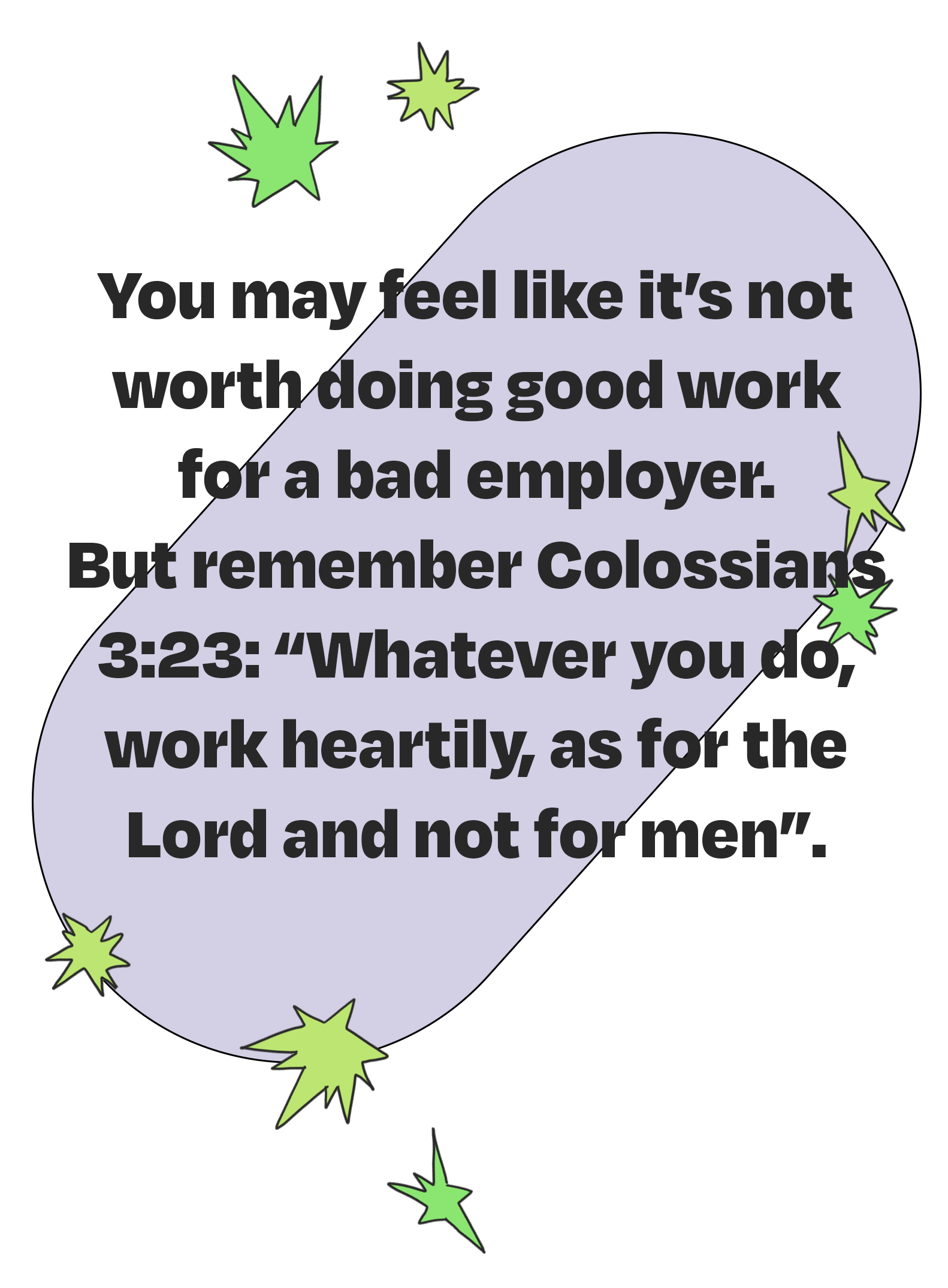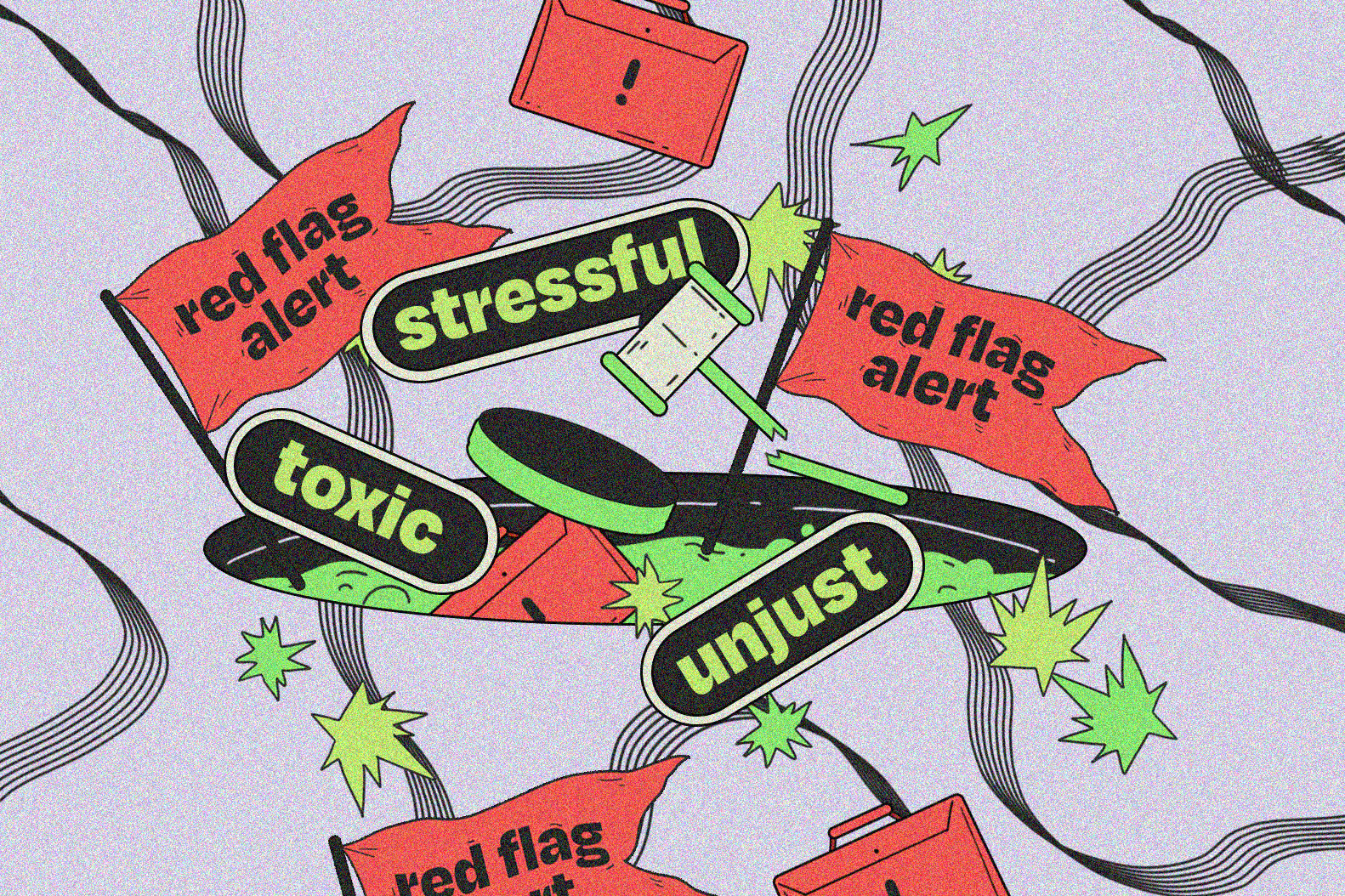What should we do if we experience injustice or ill treatment at work?
First, we could reflect on our own actions. Find out from colleagues whom we can trust what they think about our situation or our own conduct.
Prayerfully process what you have learnt before God and with another person.
Perhaps upon self-reflection, we realise that the problem is indeed with our conduct. Perhaps we need to change our conduct or attitude.
But what if the problem really is not with us?
Start by sharing with someone
A survey in 2019 revealed that Singapore has the highest percentage of employees bullied at the workplace in the world at 24%.
32% of employees were made to “feel uncomfortable” by their employers, while 44% were grappling with issues such as anxiety and stress, which is 5% higher than the global average.
If you feel pain on your skin, it’s a sign that something is wrong. If you do not pay attention to it, you will not realise that you are bleeding.
In the same way, if you feel a negative emotion towards work, you should find someone to talk to.
When it comes to emotional pain, we often doubt ourselves or dismiss what we feel. Many people do not share about their work relational problems in detail because they feel it’s trivial or they’re told that they are just “strawberries”.
Your emotions are real. They are a sign that something is wrong. We need to acknowledge the emotion and do something about it.
The problem with emotional pain is that it is not visible. If we try to figure it out on our own, we often are unable to be objective about making sense of it.
So, we need to share with someone else to help us process it. Bearing that burden all by ourselves will likely lead to mental and emotional distress.

Paul exhorts Christians: “Bear one another’s burdens, and so fulfil the law of Christ” (Galatians 6:2).
This means that we bear another person’s burdens, as well as share our own burdens with others.
Share with a friend, a mentor, a small group church member or pastoral staff.
And if you feel mentally or emotionally out of sorts, speak to a counsellor or a therapist.
Especially if you exhibit any of the following:

Understanding toxicity
When dealing with toxicity from a colleague or a toxic work culture, it is useful to understand what is causing it so that we can figure how best to respond.
I share some insights from a book titled Toxic Emotions at Work: How Compassionate Managers Handle Pain and Conflict by Peter J Frost who is a professor of organisational development and human resources.
From his research and study, he suggests these possible sources of toxicity:

Other sources include toxic colleagues (not necessarily managers) and toxic clients (unreasonable demands from clients can result in a toxic work culture).
If there is a wider culture of toxicity, it comes in part from how managers rise to the top, and how they feel a need to turn a blind eye to the toxicity they see and cause along the way.
Sometimes, we need objective views from people outside the organisation to help us understand and process our experience.
Our past workplace experience or even pre-existing relationships can shape our views about what is acceptable.
For instance, someone who started work in a toxic workplace would have never experienced a good, nurturing work environment.
So, they may (1) perpetuate toxic behaviours at work, or (2) turn to ineffective behaviours to cope. When faced with unreasonable demands, for example, their learned response is to just take it all in and accept that as normal.
After processing your experience prayerfully with God and with other people, you may discern the cause for the toxicity. What then can you do?
Speak to your boss or colleague
One response is to speak respectfully to your boss or colleague who is causing your hardship. Why should you do so?
Perhaps you realise that the person is not self-aware of his wrongful behaviour. If you feel that the person would be open to listening to your feedback, then sharing your honest feelings with him would be the loving thing to do. It would help the person to grow.
And hopefully it would help others who are also negatively impacted by the person’s behaviour.
And of course, perhaps it would improve your own working condition.
If you decide to do so, consider the right timing. Ensure there is little fault with your work performance. Use the opportunity of annual or mid-year appraisals. Ask the colleague out for coffee.
Respectfully ask about how you can improve in your working relationship and communication with the person.
If your boss or colleague responds well, you may wish to tactfully ask if you can also share some of your concerns about how to improve the working relationship.
If your boss or colleague does not respond well, perhaps you need to consider alternative options.
Seek justice
One response may be to seek recourse and justice in appropriate situations.
In Acts 16, 21, 22 and 25, Paul exercised his legal rights as a Roman citizen to seek justice, to protect himself and also to advance his mission to preach the Gospel. I glean from those chapters two main things.
First, as Christians, when faced with injustice, we can exercise rights and seek recourse within the options available to us.
Second, nonetheless, we may choose not to exercise them or choose to exercise them only later for various reasons. And God can do something good out of that too.
Within the context of suffering and injustice at the workplace, here are some practical application points.
- Seek advice. If you are in doubt about your possible rights or options, seek advice from a trusted colleague, a lawyer, your professional society or union.
- Speak to a trusted colleague or another manager. Talk to someone dependable who will listen to you and provide counsel.
- Check your HR policies and processes. There may be whistleblowing or complaint policies, abuse and misconduct policies, etc. The management may convene an inquiry and do what’s right.
- Report it to the police. If some unlawful criminal thing has occurred in the workplace or against you, you should consider reporting it to the police.
- Legal action. If a civil (but not criminal) legal wrong has been done to you, you can seek legal advice and take legal action.
It’s okay to quit
Another response in certain circumstances would be to resign from the job or request a change of department.
Many people have a fear of quitting or requesting a change of department because of the fear of the uncertainty of having no job waiting next, or the fear that it will affect our CV and thus our career prospects.
However, if we have sought wise counsel and prayerfully considered our decision, and realise that we need to leave that job or department, we should accept that it’s okay to do that, and not be driven by fear.
What’s a few months or even years of gaps in your CV compared to a lifetime of trauma? Why let the fear of uncertainty trump over your mental and emotional health?
This is especially in situations where you are being abused, something unlawful is being done to you or involving you or you are being made to do something unlawful or unrighteous.
Endure suffering like Jesus
However, not every situation calls for quitting or seeking recourse. Otherwise, we may end up never being able to hold down any job.
In most situations, things are not so grave. The conduct does not amount to abuse or something unlawful.
Maybe after prayerfully considering the matter, you feel convicted to stay on to finish a project or even indefinitely. Or you have little financial alternative options, and you really need the job.
And so you may choose to stay in the job — that’s perfectly okay too. If you stay on, then may you endure suffering mindful of God and in the manner of Christ!

I suggest some practical actions in the midst of enduring suffering at work:
Watch your tongue. When under stress, our tendency is to complain, criticise or badmouth our bosses or colleagues. Rather than do that, confide in someone outside of the work context.
Continue to do good work and exhibit good character. Do not give colleagues or bosses a basis to find fault with you.
You may feel like it’s not worth doing good work for a bad employer. But remember Colossians 3:23: “Whatever you do, work heartily, as for the Lord and not for men”.
Submit to leadership. 1 Peter 2 tells us to submit to human authority even when they’re unjust to us. Unless, of course, you are being made to do something unlawful or unrighteous.
In any case, if you refuse to submit to leadership, you will be likely deemed to have committed misconduct, which will land you in unnecessary trouble.
Avoid trouble where possible. We are called to be innocent as doves and shrewd as serpents (Matthew 10:16).
In other words, we should be blameless in our conduct. But even then, trouble will still find us.
Why are serpents considered shrewd? They anticipate danger and quickly slither away to hide under a rock.
Proverbs 22:3 says “The prudent sees danger and hides himself, but the simple go on and suffer for it.”
So, we can, as far as possible, minimise contact with toxic persons or pre-empt potential trouble and prepare steps to avoid or mitigate it.
Care for yourself and pray a lot. When enduring suffering, it will take a lot out of you. All the more you will need to rest, care for yourself and spend time in deep prayer with God.
Pray for the person causing hardship. When Jesus hung on the cross, He prayed for His enemies and forgave them. It’s difficult to do this. But Jesus calls us to pray for our enemies (Matthew 5:44).
Paul calls us to pray for all who are in authority (1 Timothy 2:1-2). Perhaps you could pray for greater love for that colleague. Perhaps if you understand why the person behaves this way, you could pray for that person to also deal with the cause.
And as you endure suffering in the manner of Christ and being mindful of Christ, may you grow deeper in communion with Him. And may you bear witness about Christ to others.
Stand firm in your identity
It is quite likely that toxicity at work would involve a boss or colleague who will say or do things to you which will make you doubt yourself, lower your self-esteem, or influence you to become negative or critical.
Worse still, they may appear to be nice and care for you, but do or say things to hurt or demean you.
How should we respond to such things?

We need to stand firm and secure in our identity.
We need to remind ourselves of who we are or rather — whose we are. We are first and foremost beloved by God.
Because we are beloved by God, we should not let toxic people’s hurtful or negative words have a hold over our lives. We should not internalise these false words.
Instead, we should let God’s Word take root in our hearts. Let God’s Word have the greatest hold over our lives: “The grass withers, and the flowers fall, but the word of the Lord endures forever” (1 Peter 1:25).
We could adapt it to “Lies will wither and toxic words fall, but the word of the Lord endures forever”.
We need to remind ourselves of whose we are. We are first and foremost beloved by God.
Imagine your soul is a glass. The false words from the world are like toxic liquids that keep flowing into this glass.
How do we get the toxic liquids out? You have to pour clean water into the glass and let it overflow. So the toxic liquids are flushed out.
And no matter how much toxic liquids flow in, it will keep getting flushed out because clean water is constantly overflowing in the glass.
God’s word is pure water that cleanses us (Ephesians 5:25-27). God’s Spirit is pure water overflowing from within our soul (John 4:14).
May we be overflowing with pure water of God’s Word and Spirit and flush out the toxic liquids from the world.
What we’ve learnt thus far…
In summary on this section, we considered that:
- We should first reflect on our own actions by processing it with another person.
- We should speak to someone to make sense of our experience or emotions.
- We can try and understand the cause of toxicity to better respond to it.
- We can speak to the person causing us hardship.
- We can seek recourse and justice in appropriate situations.
- We can resign or request a transfer in appropriate situations.
- We should endure suffering like Jesus if we choose to stay on. That means watching our tongue, doing good work, exhibiting good character, submitting to leadership, avoiding trouble, caring for ourselves and praying for the person causing hardship.
- We should stand firm in our identity as God’s beloved.
- We are not helpless or hopeless.
Unfortunately, many people often endure injustice at work quietly and develop what psychologists call “learned helplessness”.
Meaning, they learn over time that they cannot do anything about their suffering, so they are resigned to it although it is escapable.
As Christians, we are not helpless or hopeless, even though we may feel like it.
We can reframe how we see the situation. We can seek support or avoid trouble or toxic people. And if we voluntarily choose to endure suffering while mindful of God and in the manner of Christ, then we are not helpless – it is our choice to the glory of God.
* This is the second article in a three-part message from Ronald JJ Wong on suffering injustice in the workplace. Read part one, which explores how God can redeem suffering, here.
- How would you respond when faced with distress or abuse in the workplace?
- Do you have anyone to share with? If not, begin looking for such a person.
- Know someone who’s facing a toxic time at work? How can you care for and bless this person?










